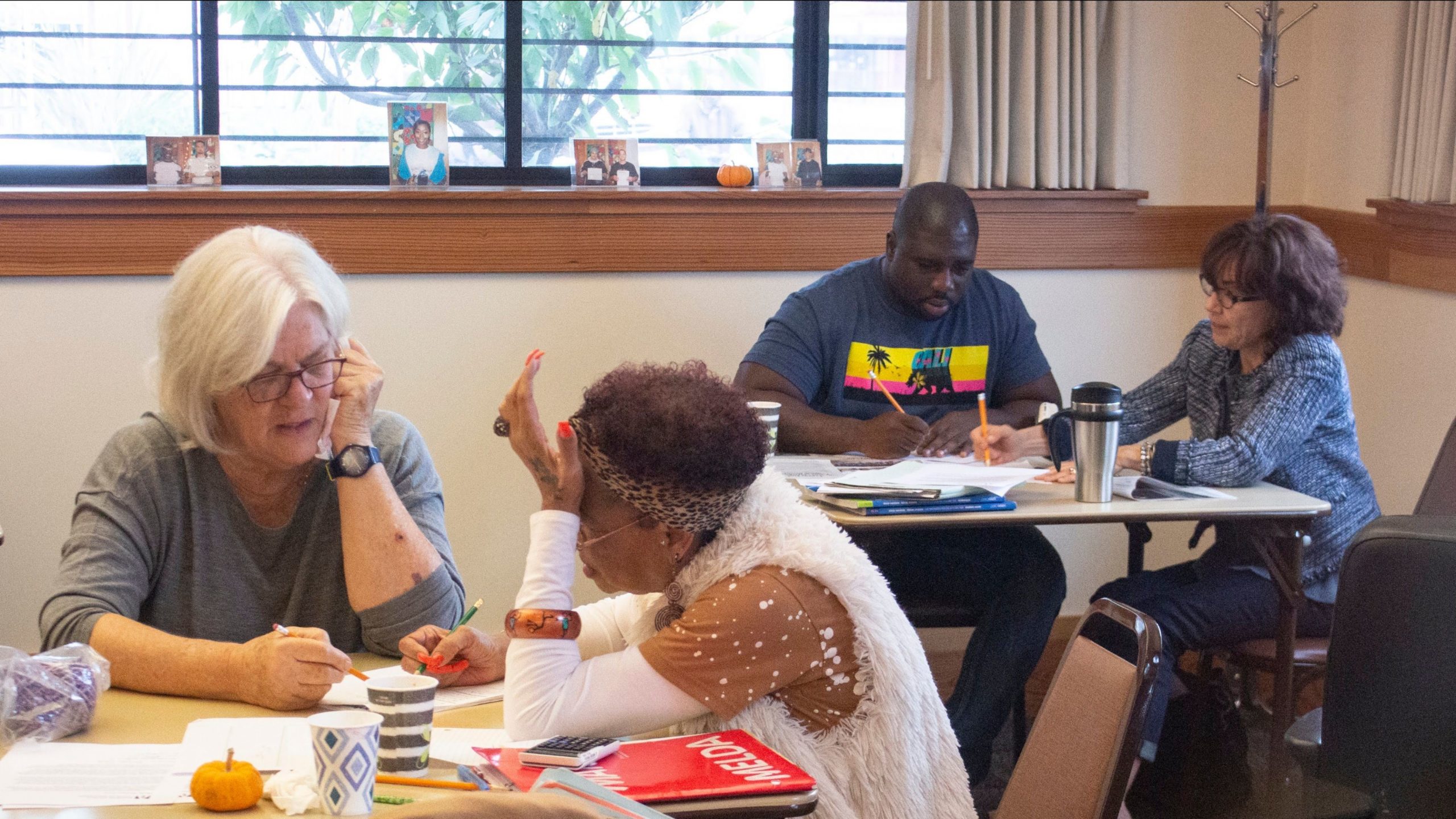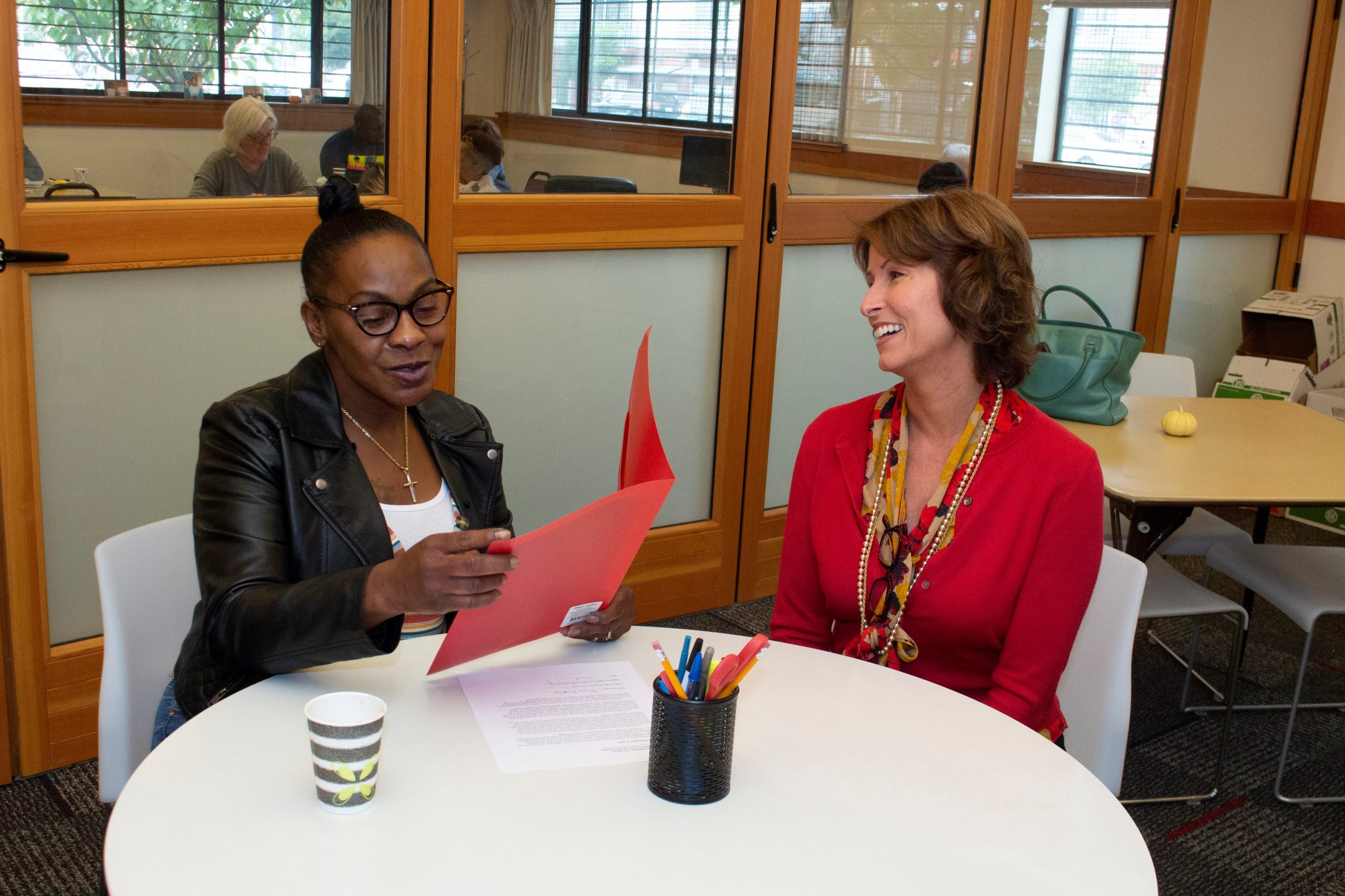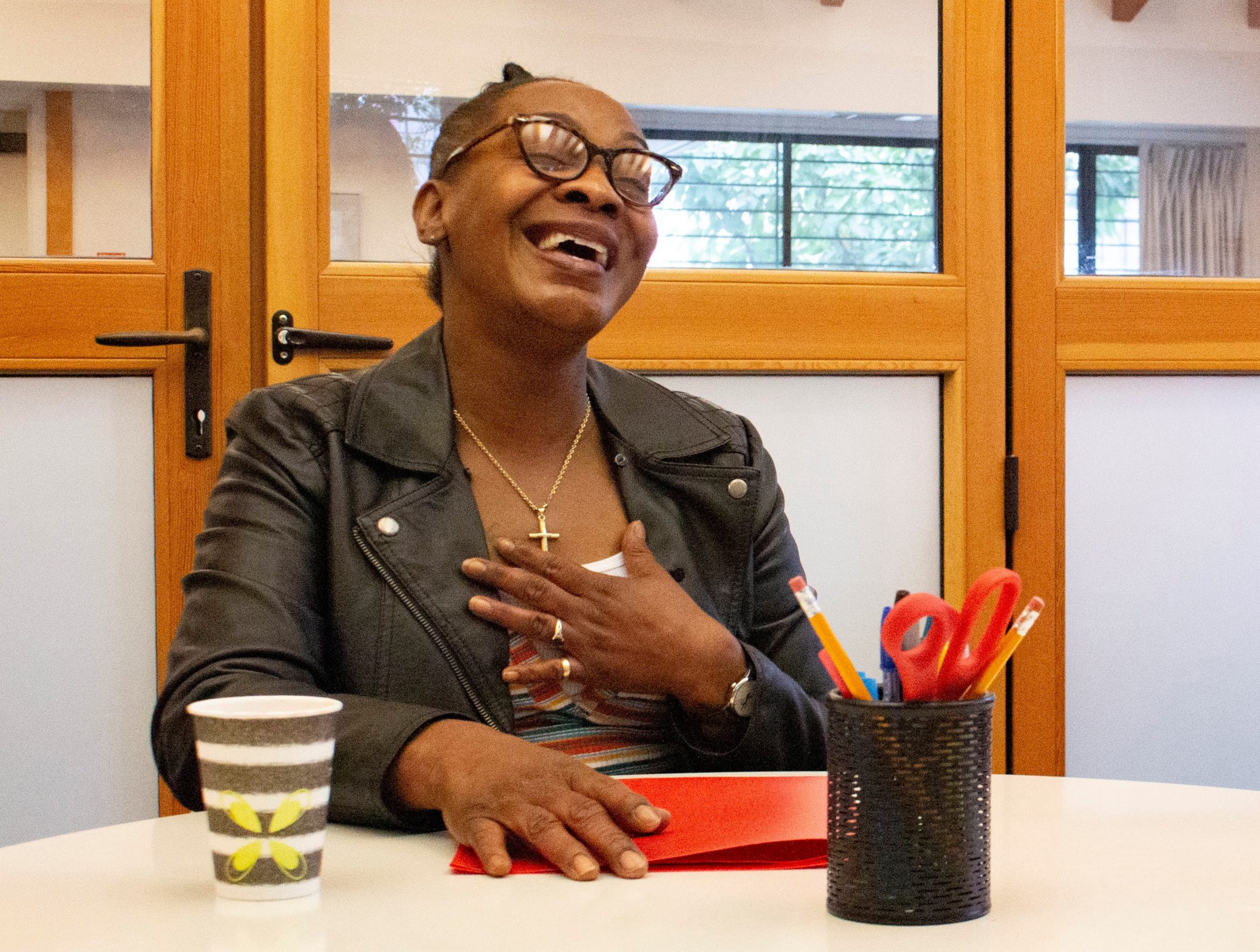| Every day, Felicia Murphy looks at her cap and gown.“It’s surreal,” she says. “For the first time in my life I set a goal and completed it.”
Murphy is one of 90 students graduating this week from the Alameda County Office of Education Opportunity Academy (AOA) who are starting a new chapter in their lives, high school diploma in hand, after a nontraditional path to commencement.
“We opened Opportunity Academy in response to the statistic at the time that 20,000 adults in Alameda County didn’t have a diploma,” said Alameda County Office of Education Chief of Schools Monica Vaughan, who oversaw the launch of AOA in 2017 to serve students who have been unsuccessful in school and are seeking a high school diploma.
Initially envisioned as a program that would serve students ages 16 to 24, in two years AOA has seen a wide range of students walk through its doors.
Murphy is an example of one of the remarkable success stories that AOA has produced.
Murphy has a longer journey behind her than most students completing high school. At 48 years old, she is earning her diploma after leaving school when she was in the 8th grade.
“I used to excel as a teenager when I went to school,” said Murphy. “I was really, really good in school. I liked going to school.”
| When her mother left her at the age of 15, Murphy and her three brothers were separated from one another. Living in what she described as a crackhouse and struggling with her new situation, Murphy was forced to drop out of school. Through the years, she experienced homelessness, major health crises, substance addiction and ongoing recovery, and many traumas.
“I was chosen, I believe, to live that life to get through all the pain and suffering, to go through what I went through to become the person I am today to let people know that we do get better and we can be whatever we want to be,” said Murphy. “I got a second chance at a first-class life.”
Murphy will the first among her four siblings to earn a high school diploma. She said that one of her brothers, who is serving a prison sentence on death row, is following her lead. “He’s back trying to get his GED. I inspired him.”
Murphy began earning credits through AOA’s original location in Oakland’s Fruitvale district at the Youth Employment Partnership (YEP). Every week, she and a growing number of others traveled from Next Step Learning Center in West Oakland to meet with AOA independent study teacher Nicole Crosby at YEP.
“Our director would carpool over students every Friday and meet with Nicole and pick up homework and drive them back,” said Next Step’s Executive Director Lisa Stringer. “She has a large car, but at a certain point it kind of got awkward.”
AOA opened a location at Next Step this year to meet these enrollment demands and expand its geographic reach.

Next Step Learning Center has a team of about 70 volunteers who support students with coursework.
| “It was such a good fit for us,” said Stringer. Her program welcomed the opportunity to let AOA contribute to the services Next Step provides, such as basic literacy development and support with transitions to higher education and the workforce.
“The people at Academy care deeply about the students,” said Stringer. “What’s different about Opportunity is that every single student is an individual for them and they’re willing to go the extra distance to do what’s right for that student and care about that student.”
AOA offers a path to a diploma to students for whom a high school diploma equivalency certificate – such as the GED, which is earned by passing a series of tests – is not a viable option.
“For many of our students, test-taking is not the best path for them,” said Stringer, who noted that some students struggle to complete a standardized test with pressure to do well under time constraints. “We know that statistically if you get a high school diploma you have a much better chance of succeeding in college and succeeding in career.”
“If you’d ask my students, they are pretty much exclusively focused on this diploma, this particular goal set in front of them,” said AOA teacher Crosby.
But for Crosby, it’s deeper than that.
“That piece of paper is the ultimate carrot, so to speak, but I am hoping that they will gain confidence that will permeate all parts of them. That it will make them interact with the world differently, that will make the world possibly interact with them differently, that will open doors that might have been closed before.”

Felicia Murphy, left, credits much of her success to Next Step Learning Center and AOA teacher Nicole Crosby, right, who has three decades of teaching experience, with 20 years in alternative education settings.
| Stringer said she has discovered that learning can be an emotional process, and for many AOA students, whose painful experiences and crises led them to leave school in the first place, supporting their return to the classroom is critical.
“If we’re miserable and don’t feel supported, we don’t learn,” Stringer said. “I think that the secret formula is having the structure of the high school, with a teacher like Nicole, and the school like Opportunity that is willing to individualize and really maximize independent study.”
Initial conversations with students at Next Step involve assessing and planning around the student’s needs with scheduling, transportation, child care and barriers to attending class.
“If a person walks through the door, the courage it took to do that is enormous,” said Crosby. “They are walking through that door that has yet to be successful for them.”
When AOA opened in 2017, the projected enrollment was 50 students. Instead, the school enrolled and served 187 students in the 2017-18 school year. By the end of 2018-19, AOA enrolled and served 256 students.
“We’re proud that we’ve been able to develop a program to meet a need, and that we’re able to grow and now have four locations,” said Vaughan.
In addition to AOA’s YEP and East Oakland locations and its expansion to Next Step in West Oakland, AOA also expanded its services to La Familia in southern Hayward in the fall of 2019 to meet demand.
“It became quickly clear how the need kept growing and growing and growing,” said Crosby, who has spent 20 of her 30 years as a teacher in alternative education settings, including ACOE’s court school program, and moved from the YEP to Next Step location of AOA this fall. “So we made this happen a couple of months ago, and boy, the floodgates have opened and that’s a wonderful thing.”
AOA primarily fills its slots with students referred from other programs and by fellow students.
“I’m so used to calling them kids,” said Crosby. “Much of my career was serving 18 year olds and under and so I’ve had to shift my language a little bit. I have students now from 17 to about 65.”
“We originally were targeting 16 to 24 years olds,” said Vaughan. “But we were very moved by individuals who were approaching us who were older than 24 and we’re really happy that we were able to lift that ceiling on age and serve anyone who desires to earn their diploma.”
Murphy says that after four years of working toward her diploma, she regards Next Step as her “safe haven.”
“I came here many days and was like you know what, maybe this ain’t for me… Maybe I’ll come back at some other time, maybe I’ll try something else out there, knowing I don’t know nothing else to try,” Murphy said. “This place helped me put my life together. They are my family.”
Murphy will give a commencement speech before she walks across the stage on November 21 at the San Leandro Performing Arts Center with the largest graduating class in AOA’s history – and she will be handed a high school diploma.
“No matter what, I came, I saw, I conquered and I got through,” said Murphy.
She plans to start college in January, and eventually work with youth as a substance abuse counselor or case manager.
“Just imagine me, all my street experience combined with the intellectual,” Murphy said with a smile. “Girl, I’m going to be bad.” |
|
|
|

